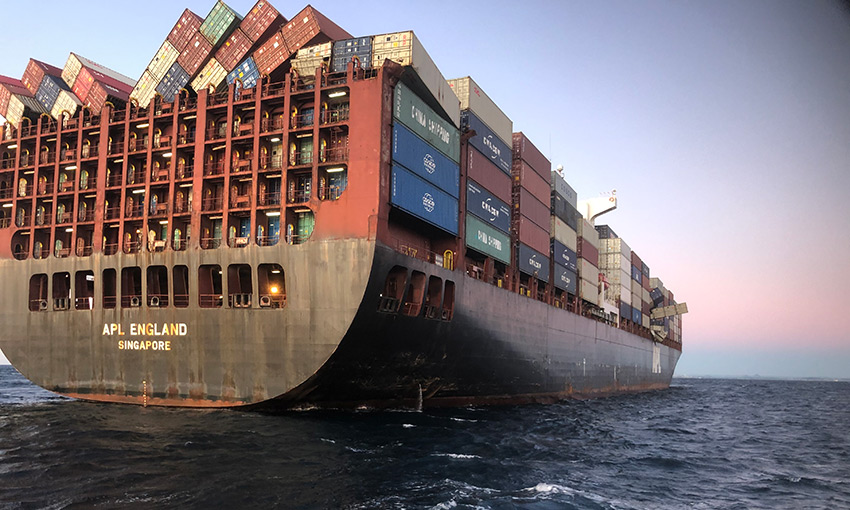A CAMPAIGN targeting container securing arrangements on ships visiting Australian ports have been launched by the Australian Maritime Safety Authority.
This follows high profile incidents such as the APL England which lost 50 vessels over the side south-east of Sydney two months ago, the Navios Unite which lost three containers overboard near Cape Leeuwin and the YM Efficiency which lost 81 into the Pacific Ocean off Newcastle in 2018.
According to the regulator, incident investigations by AMSA have discovered the improper stacking and securing of cargo and poor maintenance of securing equipment are likely to have been contributing factors to these incidents.
AMSA acting general manager of operations Michael Drake said vessels visiting Australia must ensure they fully comply with the international standards relating to cargo securing laid out in Chapter VI of the Safety of Life at Sea (SOLAS) Convention.
“We have seen the serious consequence of improper cargo securing arrangements in the form of tonnes plastics and other debris washing up on our beautiful beaches and floating in our oceans,” Mr Drake said.
“Rusted cargo securing points, improper lashings and exceeding stack weight limits have all contributed to these incidents and ship operators should be on notice that non-compliance will not be tolerated in Australia.”
The focused inspection campaign is to run from the start of August until the end of October and is to involve both extended port state control inspections and stand-alone inspections on vessels which are not currently eligible for PSC inspection.
According to AMSA, if a cargo ship visits Australia during this period, the master should expect that AMSA will visit the ship as part of this focussed campaign.
AMSA encourages ship owners and masters to familiarise themselves with the approved cargo securing manual for their vessel and Marine Order 42 which gives effect to Chapter VI of SOLAS in Australia. This focussed inspection campaign is aimed at education, improving standards, and reducing the number of incidents that result in cargo being lost at sea.

